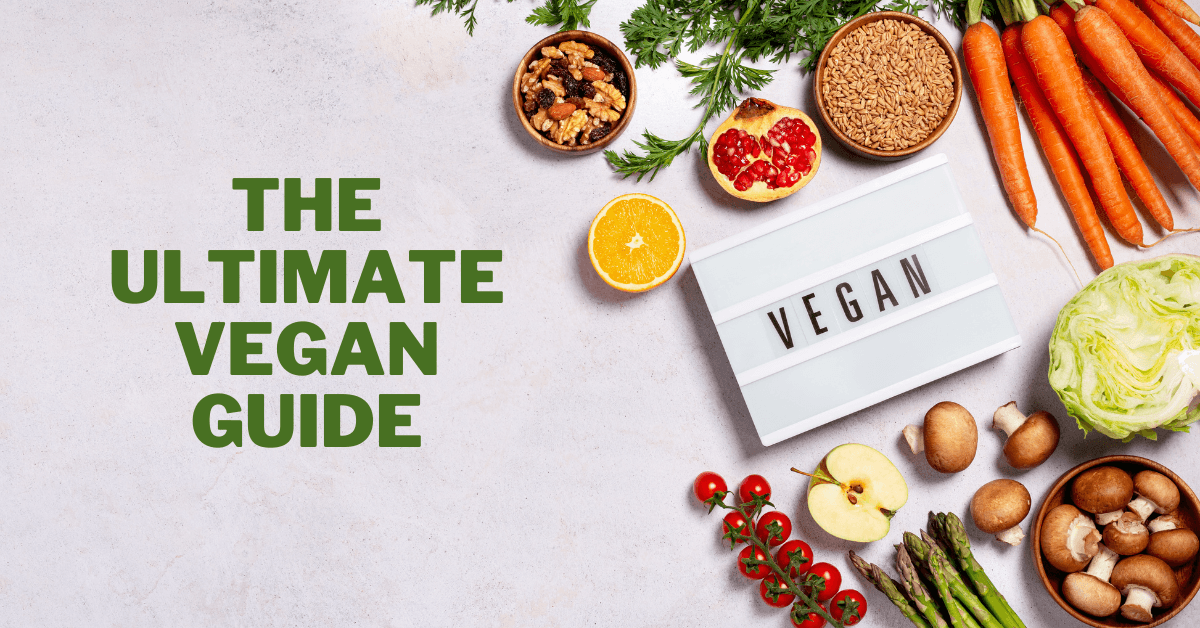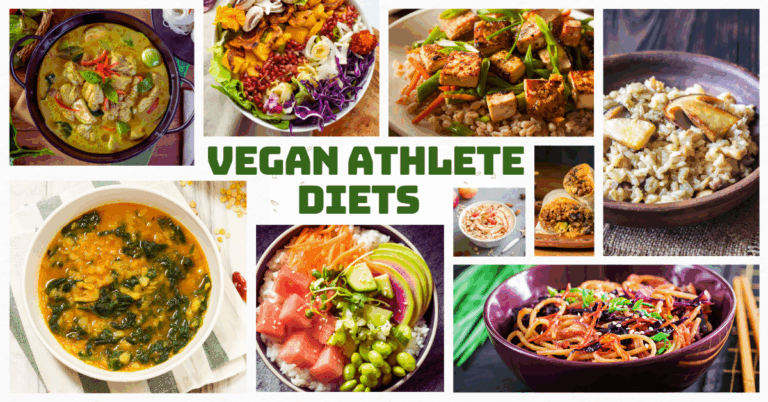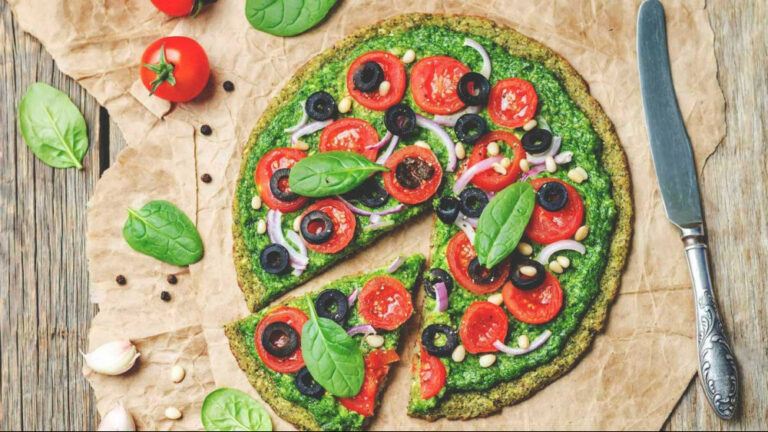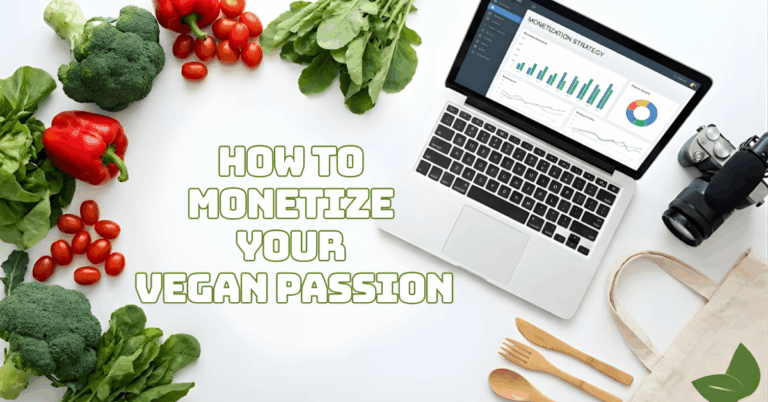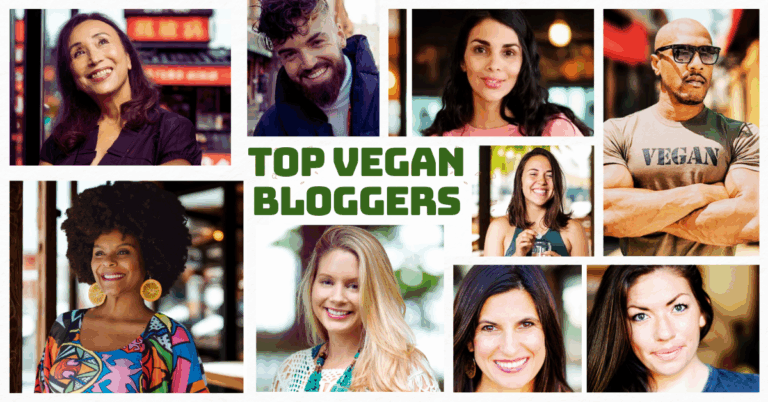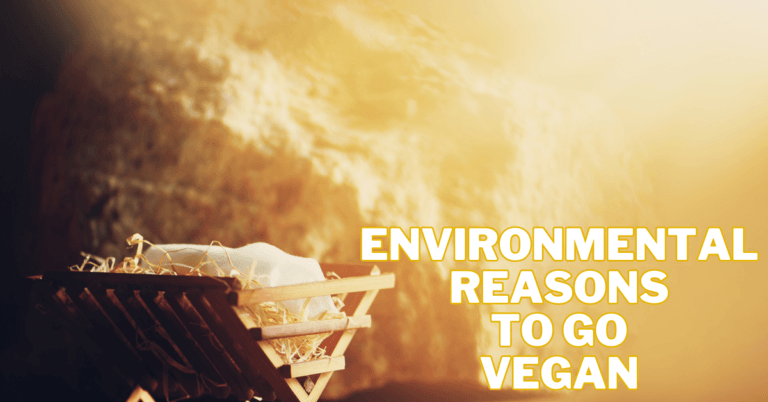The Ultimate Vegan Guide
The Ultimate Vegan Guide
In a world where conscious choices intertwine seamlessly with a desire for vibrant living, veganism has emerged as a transformative force, influencing not just dietary preferences but lifestyles and perspectives.
Welcome to the ultimate vegan guide, where we embark on a journey through plant-based living—a guide designed to illuminate the path to compassionate choices, ethical exploration, and flourishing cruelty-free existence.
From delectable recipes to sustainable living tips, travel adventures, and mindful practices, this comprehensive guide is your passport to a world where every choice resonates with kindness, health, and a harmonious connection to the planet.
Join us as we delve into veganism's diverse and dynamic universe, exploring its multifaceted dimensions and celebrating the joyous, fulfilling, and ever-evolving essence of a plant-powered life.
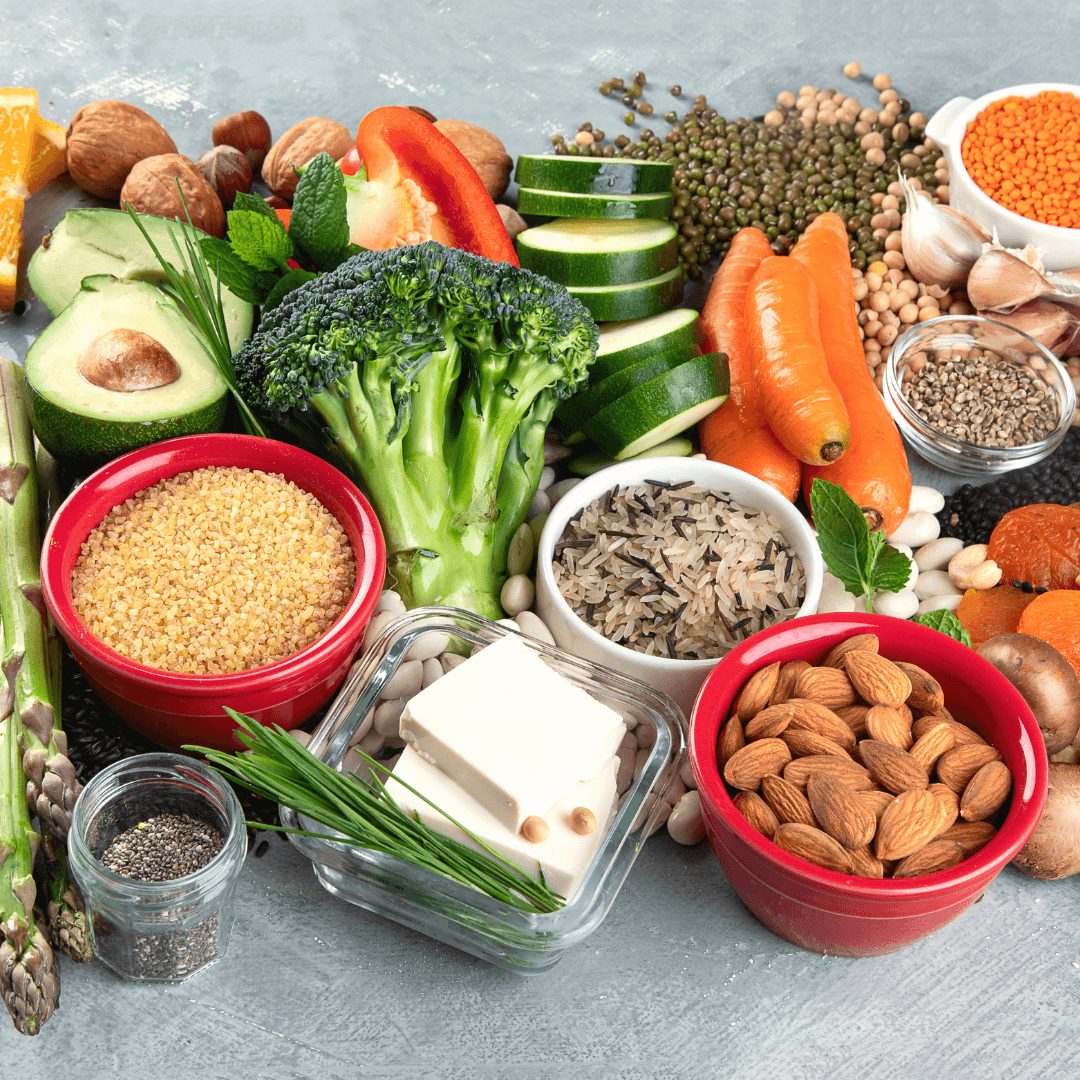
1. Plant-Based Nutrition
Leaping to a plant-based diet may lead to a world of colourful and satisfying food, where each mouthful benefits the individual and the earth's health.
Each bite contributes to personal well-being and the planet's health—a journey seamlessly guided by the principles outlined in the ultimate vegan guide.
First and foremost, let's address the perennial concern: protein. Contrary to misconceptions, a wealth of plant-based protein sources awaits discovery.
From hearty legumes like chickpeas and lentils to the versatile tofu, tempeh, and seitan, the plant kingdom offers various protein-packed options to support muscle health and overall vitality.
Essential nutrients frequently linked to animal products, like vitamin B12 and omega-3 fatty acids, can be obtained from plant-based substitutes.
Flaxseeds, chia seeds, and walnuts are rich in omega-3s, while fortified plant-based milk and nutritional yeast provide a reliable B12 boost.
Navigating the spectrum of colourful fruits and vegetables ensures diverse vitamins and minerals. Leafy greens like kale and spinach, vibrant berries, and citrus fruits contribute to a robust immune system and radiant skin.
Tips for crafting a nutritionally sound plant-based plate include incorporating whole grains like quinoa and brown rice, experimenting with various herbs and spices for flavour without added calories, and embracing the wholesome goodness of nuts and seeds as snacks and meal enhancers.

2. Delicious Vegan Recipes
A delicious trip into vegan cooking reveals a rainbow of tastes, demonstrating that plant-based diets are healthy and a mouthwatering celebration of culinary ingenuity.
These vegan recipes are a sensory feast, ranging from simple and quick weeknight dinners to exquisite treats that elevate any occasion.
Start quickly by exploring the world of one-pot miracles with a flavourful Tagine of chickpeas and vegetables.
This recipe, bursting with rich flavours and aromatic spices, is a testament to the ease of use and robust flavour that plant-based cooking can provide.
Make a colourful Avocado And Black Bean Wrap when you're short on time. Tight with fibre and protein and with a spicy bite from the avocado, it is a filling and quick lunch or dinner.
With fluffy vegan pancakes topped with a smear of maple syrup and a waterfall of fresh berries, you can raise your brunch game.
The key? An egg substitute made from flaxseed that effortlessly ties the components together and adds the ideal amount of moisture.
The Wild Mushroom Risotto is a culinary masterpiece perfect for people looking for a gourmet experience.
This creamy, decadent dish, made with arborio rice, sautéed mushrooms, and a dash of white wine, will surely please even the pickiest diners.
Finish off your meal adventure with a rich Chocolate Avocado Mousse. Smooth, decadent, and surprisingly nutritious, this dessert is the most delicious treat in the vegan world.
These recipes highlight the amazing variety of plant-based cooking, demonstrating that adopting a vegan diet is an invitation to a world of deliciousness and culinary creativity rather than one of deprivation.
These dishes are suitable for all skill levels, so whether you're an experienced cook or a kitchen newbie, every meal will be a delicious journey into the world of vegan perfection.

3. Vegan Beauty And Fashion
A compassionate and cruelty-free approach is not simply a trend in the beauty and fashion industries; it is a way of life that aligns with personal beliefs and the environment's health.
Together, we will explore the worlds of sustainable fashion and vegan beauty, where each decision is a moral declaration and a celebration of conscientious living.
Investigate the splendour of cruelty-free skincare, haircare, and makeup products. The selections are luxurious and guilt-free, ranging from nutritious moisturizers free of animal byproducts to gorgeous lipsticks not tested on animals.
Explore the colourful world of companies dedicated to ethical beauty; they have everything from bold eyeshadow palettes to safe, botanical-infused serums that revitalize.
Let's enter the eco-aware fashion world, where sustainability and style collide. Explore the opulent textures of plant-based materials such as cork, pineapple fibre, and mushroom leather, and fall in love with the cruelty-free alternatives to leather and silk.
Sustainable fashion is a declaration of environmental responsibility, not just what you wear. Accept clothes made ethically, knowing your ensemble harmoniously combines compassion and style.
Finish your journey by dressing in a way that reflects your values. Discover the timeless elegance of capsule wardrobes, where every item is chosen with longevity and adaptability in mind.
Explore the world of fair trade and adorn yourself with one-of-a-kind, handcrafted items while helping artisans and communities. Sustainable fashion and vegan beauty are manifestations of a compassionate lifestyle, not merely personal preferences.
One lipstick and ethically made garment at a time, these decisions transform people into conscious stewards of a more compassionate and harmonious world, not just consumers.

4. Vegan Fitness And Athletes
Vegan fitness and athletics thrive on the robust foundation of plant-based nutrition, which offers ample resources for meeting the heightened demands of physical activity.
Contrary to the misconception that a vegan diet lacks sufficient protein, numerous plant-based sources provide the essential amino acids vital for muscle repair and growth.
Lentils, chickpeas, quinoa, tofu, and tempeh are exemplary protein sources that cater to the nutritional needs of athletes, ensuring they maintain peak performance.
Notably, many successful athletes have embraced a vegan lifestyle, challenging traditional notions that animal products are indispensable for athletic prowess.
Renowned names such as Novak Djokovic, Venus Williams, and Lewis Hamilton have excelled in their respective sports while adhering to a plant-based diet.
These athletes demonstrate the feasibility of achieving top-tier performance without animal products and inspire others to explore the benefits of plant-powered living.
The success stories of vegan athletes extend beyond individual achievements, highlighting the broader shift toward sustainable and compassionate practices in the realm of sports.
These athletes often cite improved recovery times, enhanced endurance, and heightened mental clarity as some of the advantages of their plant-based lifestyles.
In doing so, they challenge conventional norms, prompting a reevaluation of dietary choices within the athletic community and illustrating that a vegan diet can fuel extraordinary athletic feats.
Ultimately, the fusion of veganism and athletics becomes a compelling narrative of strength, resilience, and the potential for optimal performance through plant-based nutrition.

5. Vegan Travel
To guarantee a smooth and delightful trip, meticulous planning is necessary before starting a vegan adventure.
When choosing locations, consider cities with a growing vegan community or those where plant-based eating is more common.
Applications and websites devoted to vegan travel can be very helpful in finding restaurants and accommodations that cater to vegans. Urban menus are often more varied, making finding plant-based options simpler.
As a vegan, it takes planning to pack snacks for travel to navigate airport food. Nuts, seeds, dried fruits, and energy bars are portable, non-perishable foods that make good travel and layover companions.
In addition, travellers can stay hydrated and invigorated by packing a reusable water bottle and choosing fresh fruits, readily available at airport kiosks.
For a seamless dining experience, it is essential to communicate dietary preferences when travelling. Learning a few key phrases in the local language that express your dietary restrictions can be very helpful.
When dining out, ask the staff, the chefs, or the locals for recommendations or clarification on menu items. Many places are understanding and ready to alter menu items to suit vegan dietary requirements.
Regarding travel, the ultimate vegan guide suggests using technology to your advantage by using multilingual dietary restriction cards and translation apps.
It also suggests choosing lodgings with kitchens to improve culinary control and dietary observance.
When choosing a location, prefer lodgings with kitchens since they make it easier to prepare basic vegan meals and guarantee that dietary requirements are satisfied.

6. Vegan Parenting
Raising vegan children involves thoughtful attention to their nutritional needs, societal attitudes, and potential challenges.
Providing a well-balanced and varied plant-based diet is crucial for meeting the nutritional requirements of growing bodies.
Key nutrients like protein, iron, calcium, vitamin B12, and omega-3 fatty acids can be sourced from plant-based foods like legumes, grains, fortified plant milk, fruits, and vegetables.
Consulting with a pediatrician or a registered dietitian specializing in pediatric nutrition can offer personalized guidance to ensure children receive the essential nutrients for optimal growth and development.
Navigating societal attitudes and challenges is an integral aspect of vegan parenting. Parents may encounter skepticism or concern from family members, friends, or even healthcare professionals who may be unfamiliar with the nutritional adequacy of a vegan diet.
Open and informative communication about a vegan lifestyle's health benefits, ethical considerations, and environmental impact can help dispel misconceptions.
Educating children about their dietary choices, fostering a positive attitude toward food, and equipping them with age-appropriate responses to questions from peers contribute to their confidence in embracing a vegan lifestyle.
Additionally, connecting with local or online vegan parenting communities can offer support, share experiences, and provide a sense of community for parents raising vegan children.
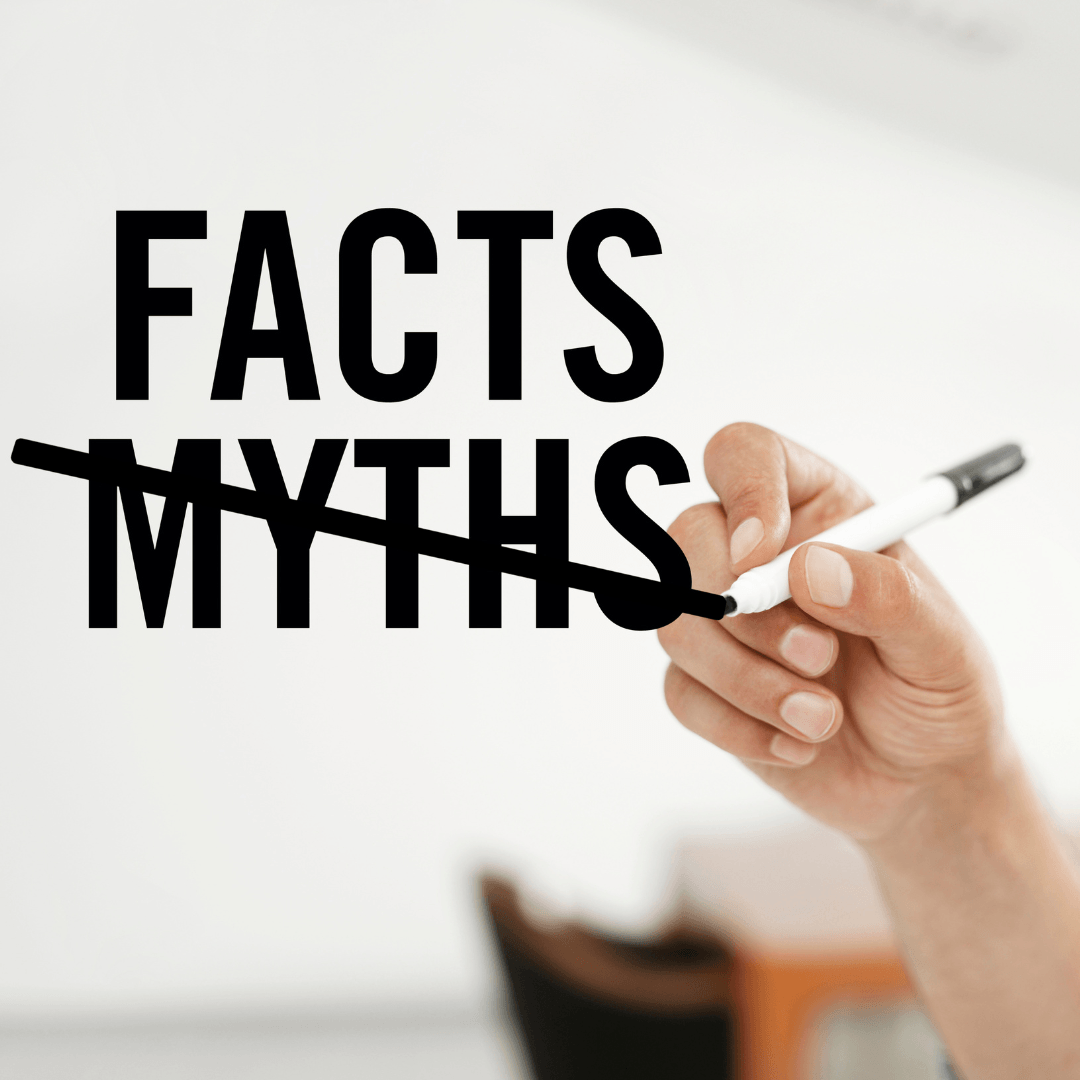
7. Common Vegan Myths And Misconceptions
Common vegan myths and misconceptions often revolve around nutrition, ethics, and practicality concerns. One prevalent misconception is that a vegan diet lacks essential nutrients like protein, iron, and B12.
However, a vegan diet can provide all necessary nutrients through plant-based sources and fortified foods. Ethical concerns about plant-based diets often lead to the misconception that agriculture harms animals and the environment more than animal agriculture.
In reality, the majority of environmental degradation and animal suffering is linked to the meat and dairy industries. Responding to these myths involves sharing accurate information.
Emphasizing diverse plant-based protein sources, the abundance of nutrient-rich plant foods, and the environmental benefits of veganism can dispel misconceptions.
Additionally, addressing the variety and availability of vegan alternatives in today's market showcases the practicality of a plant-based lifestyle.
Engaging in open, respectful conversations and providing credible resources can help debunk myths surrounding veganism.
By fostering understanding and dispelling misinformation, individuals can make informed choices that align with their values and contribute to a more compassionate and sustainable world.

8. Veganism And Cultural Sensitivity
Veganism and cultural sensitivity involve recognizing and respecting diverse traditions, beliefs, and culinary practices.
When navigating cultural and religious considerations, it's essential to approach conversations with openness and understanding.
Some cultures may have strong ties to certain animal products, and it's crucial to acknowledge and respect these practices while promoting the idea that plant-based options can be integrated into diverse culinary traditions.
Celebrating diverse vegan cuisines is key to promoting cultural sensitivity within the vegan community.
Highlighting the richness of plant-based dishes from various cultures showcases the versatility and flavour of vegan eating.
This broadens culinary horizons and demonstrates that veganism is inclusive and can be embraced within cultural contexts. Building bridges and fostering understanding involves engaging in dialogue that respects cultural diversity.
Within the framework of the ultimate vegan guide, building bridges and fostering understanding encourages dialogues that respect cultural diversity, emphasizing shared values like compassion and sustainability to dispel misconceptions about the compatibility of veganism with cultural or religious practices, ultimately promoting unity through open and respectful communication.
Finally, promoting cultural sensitivity within veganism involves appreciating the wealth of culinary traditions, understanding cultural contexts, and fostering unity through open and respectful communication.
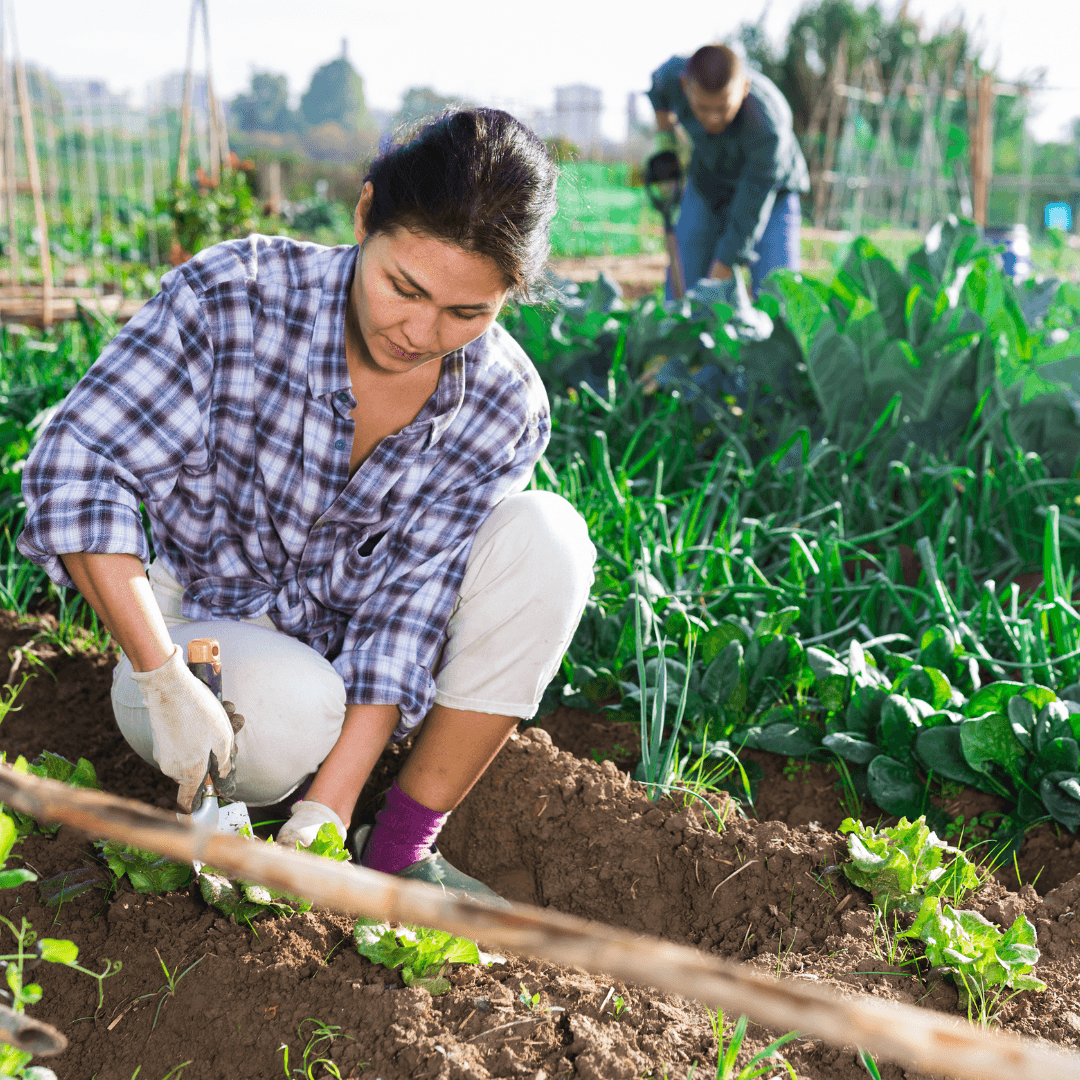
9. Vegan Gardening And Farming
Vegan gardening and farming embrace the principles of self-sufficiency, sustainability, and ethical cultivation. Growing vegetables and fruits empowers individuals to take control of their food supply, fostering a deep connection to the earth and reducing reliance on industrial agriculture.
It allows for cultivating diverse, fresh produce right at home, promoting a plant-based lifestyle that extends from the plate to the garden.
Sustainable and ethical gardening practices play a pivotal role in vegan cultivation. This involves avoiding synthetic pesticides and fertilizers, opting for organic methods, and employing permaculture principles to create regenerative, low-impact ecosystems.
Composting kitchen scraps and adopting water-saving techniques contribute to the overall sustainability of vegan gardening.
Supporting local vegan farmers strengthens community bonds and promotes ethical agricultural practices. Individuals contribute to developing a sustainable and compassionate food system by purchasing locally grown, plant-based produce.
This reduces the environmental footprint associated with food transportation and fosters a sense of community resilience and support for ethical farming practices.
In essence, vegan gardening and supporting local farmers align with the ethos of sustainability and ethical choices, embodying a holistic commitment to plant-based living.

10. Veganism In The Medical Field
Veganism in the medical field involves recognizing and addressing the dietary choices of patients within a healthcare framework.
Healthcare providers are essential in helping vegan patients because they recognize and comprehend the nutritional benefits of a plant-based lifestyle.
This includes being knowledgeable about plant-based sources of essential nutrients and offering guidance to ensure patients maintain optimal health.
Plant-based nutrition education for medical practitioners is essential for fostering a comprehensive understanding of the benefits and challenges associated with vegan diets.
Training healthcare professionals in plant-based nutrition equips them with the tools to provide informed advice, address nutritional concerns, and support patients in making sustainable dietary choices aligned with their values.
Collaboration between patients and medical professionals is crucial for holistic health. By working together, patients can receive personalized guidance on meeting their nutritional needs, managing health conditions, and navigating potential challenges associated with a vegan lifestyle.
This collaborative approach ensures that healthcare professionals are well-equipped to provide inclusive and effective care, promoting overall well-being within the growing community of individuals choosing plant-based diets for health and ethical reasons.

11. Vegan On A Budget
Being a vegan on a budget involves strategic choices to maintain a plant-based lifestyle without breaking the bank.
The Ultimate Vegan Guide emphasizes a cost-effective approach to maintaining a plant-based lifestyle while navigating the realms of affordability in veganism. It highlights pantry staples like beans and lentils as affordable plant-based protein sources.
Affordable plant-based protein sources include pantry staples like beans, lentils, and chickpeas, which provide essential protein and deliver fiber and nutrients at a low cost. Buying these items in bulk further reduces expenses.
To save money on vegan groceries, consider purchasing seasonal fruits and vegetables, which are often more affordable and abundant.
Additionally, explore local farmers' markets, discount stores, and sales to find budget-friendly produce.
Frozen fruits and vegetables are another economical option, as they have a longer shelf life and can be less expensive than fresh alternatives.
Creating budget-friendly vegan meals involves planning and incorporating cost-effective ingredients.
Utilize grains like rice, oats, and pasta as affordable bases and complement them with inexpensive yet nutritious vegetables, legumes, and tofu.
Batch cooking and meal prepping can optimize resources and reduce overall spending by ensuring that ingredients are used efficiently.
Individuals can embrace a plant-based lifestyle without compromising their financial well-being by strategically choosing affordable protein sources, being mindful of grocery expenses, and planning budget-friendly meals.
This approach not only makes veganism accessible to a wider audience but also demonstrates that compassionate and sustainable eating can be both ethical and economical.

12. Vegan Spiritual Practices
Vegan spiritual practices delve into the interconnectedness of ethical living, compassion, and mindfulness within the context of veganism.
Exploring the spiritual aspects of veganism involves recognizing the profound connection between one's dietary choices and the well-being of the planet, other sentient beings, and oneself.
It acknowledges the spiritual value of practicing compassion and nonviolence in daily life. Veganism intersects with various religious traditions, each emphasizing kindness, stewardship, and reverence for life.
Many spiritual teachings align with the principles of vegan living, fostering a sense of harmony with the Earth and its inhabitants.
Embracing veganism within one's spiritual journey often becomes a tangible expression of these shared values. Mindful eating and meditation offer practical tools for integrating spirituality into a vegan lifestyle.
By practicing mindfulness during meals, individuals can deepen their appreciation for the nourishing qualities of plant-based foods and cultivate gratitude for the interconnected web of life.
Meditation becomes a way to connect with the ethical and spiritual dimensions of veganism, promoting a sense of inner peace, compassion, and alignment with the values that underpin a plant-based way of living.
Conclusion
The Ultimate Vegan Guide is a comprehensive resource for individuals seeking to embrace and thrive in a plant-based lifestyle.
From the ethical foundations to the practical nuances, this guide covers various topics designed to support and empower those on their vegan journey. Ultimately, the guide extends beyond the individual journey, advocating for positive change on a broader scale.
It encourages active engagement in the vegan community, support for ethical businesses, and collaboration with healthcare professionals to promote holistic well-being.
By embracing the principles of sustainability, compassion, and health, the ultimate vegan guide aims to inspire, inform, and empower individuals to make conscious choices that align with their values, contributing to a more compassionate, ethical, and sustainable world.
I trust you enjoyed reading the article about The Ultimate Vegan Guide. Please stay tuned. More blog posts will be posted very shortly.
JeannetteZ
>>>Please click here to read my Vegan Travel Guides To World Destinations<<<
>>>Want To Learn How To Create Delicious, Cruelty-Free, Healthy AND 100% Vegan Meals? Try These Awesome Vegan Cooking Courses With A Free 7-DAY MEMBERSHIP<<<
Your Opinion Is Important To Me
Do you have thoughts, ideas, or questions? I would love to hear from you. Would you mind leaving me your questions, experiences and remarks about The Ultimate Vegan Guide in the comments section below? You can also email me at Jeannette@LivingTheVeganLifestyle.org.
Disclosure
This post may contain affiliate links. I earn from qualifying purchases as an Amazon Associate and through other affiliate programs. Please read my full disclosure.
You might also enjoy these blog posts:
Nourishing Your Body With Vitamin D-Rich Vegan Foods
Best Vegan Beauty Personal Care Products
Best Vegan Pet Food For Health And Happiness
Why You Should Go Vegan – A Guide
Cruelty-Free Vegan Cosmetics – Love The Animals

